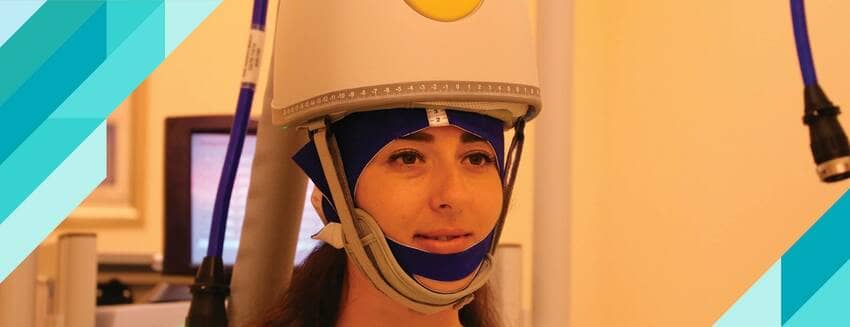
The 16th Annual World Brain Mapping and Treatment Association Congress was held at the Los Angeles California Convention Center. Making a presentation on "autism" at the congress held on March 15-17, 2019, Assoc. Prof. Dr. Emel Sarı Gökten shared data on rTMS treatment in children and adolescents with autism. Gökten stated that children who underwent sensory integration therapy after rTMS treatment showed significant improvements in the basic symptoms of autism and therapy utilization rates compared to other groups.
[haberyatay=child-with-autism-should-be-along-with-his-grandparents]
Üsküdar University NPISTANBUL Hospital Child Adolescent Psychiatry Specialist Assoc. Prof. Dr. Emel Sarı Gökten attended the 16th Annual World Brain Mapping and Treatment Association Congress. Gökten gave important information about autism and treatment methods at the congress.
Explaining that the use of Transcranial Magnetic Stimulation (TMS) is effective in improving the basic symptoms of Autism Spectrum Disorder (ASD) or cognitive disorders associated with ASD, Assoc. Prof. Dr. Emel Sarı Gökten said, "ASD is a lifelong disorder and most patients have serious problems in terms of psychosocial functioning throughout their adult lives."
"There are still significant limitations in the treatment of ASD"
Stating that ASD covers a group of neurodevelopmental disorders that include various levels of impaired social communication and interaction, restricted interests and repetitive behaviors, Gökten continued his words as follows:
[haberyatay=tmu-treatment-effective-in-autism]
"Communication deficits can range from no development of spoken language to inability to use it effectively and functionally, while limited interests and repetitive behaviors can range from mild to severe. Other frequently associated features include cognitive delay, epilepsy and significant psychiatric disorders such as motor retardation, obsessive-compulsive disorder, mood disorders and attention deficit hyperactivity disorder. There are currently significant limitations in the treatment of ASD. Pharmacological treatment is only indicated for psychiatric comorbidity and has no measurable effect on the core symptoms of ASD. On the other hand, available non-pharmacologic interventions are often expensive, time-consuming and do not have very satisfactory results.
What is Transcranial Magnetic Stimulation (TMS)?
In recent years, the use of non-invasive neuromodulation techniques suggests that it may be an effective tool in the treatment of the core symptoms and cognitive deficits of ASD. Transcranial Magnetic Stimulation (TMS) is a neuromodulation technique that targets a specific area (mostly the prefrontal cortex) and enhances neuronal excitability and cognitive mechanisms through magnetic stimulation in the targeted area.
Repetitive TMS (rTMS) delivers multiple stimulation over a selected brain region, typically at frequencies ranging between 0.5 Hz and 20 Hz. As there are no medications that treat the core symptoms of ASD, some clinical programs offer rTMS to treat ASD symptoms, however, its evidence-based long-term efficacy is not clear in this context. No significant side effects were observed in all scientific studies on safety."
rTMS and sensory integration therapy led to positive improvements
Sharing the first data on "rTMS treatment in children and adolescents with autism" conducted in cooperation with Üsküdar University and NPISTANBUL Hospital, Gökten stated that children who received sensory integration therapy after rTMS had significant improvements in the basic symptoms of autism and in the rate of benefit from therapy compared to other groups. Stating that the findings are still very new, Assoc. Prof. Dr. Emel Sarı Gökten stated that follow-ups will continue on whether the gains will be permanent.
Neurosurgeons, radiologists, neurologists, psychiatrists, rehabilitation medicine doctors, cardiologists, pulmonologists, bioethicists, oncologists, radiation oncologists, neuroscientists, engineers, physicists, cognitive neuroscientists, health managers, health professionals, government officials and students attended the congress.








